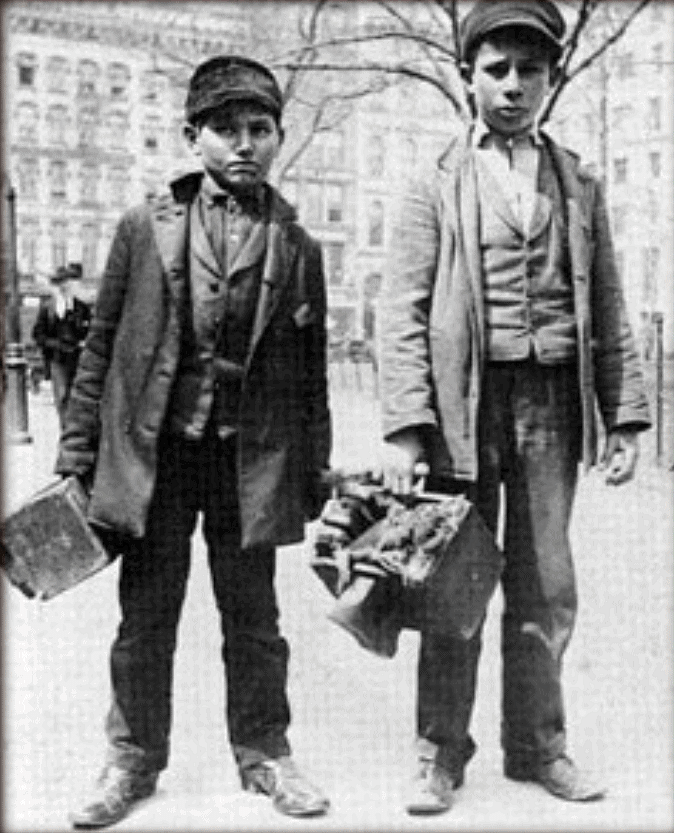Two Gentlemen of Verona Summary Class 10 Literature Reader Chapter 1
SUMMARY
The beautiful piece of fiction by A. J. Cronin shows the difficult lives of people during a war, when many families became orphaned and millions lost their homes. The title, ‘Two Gentlemen of Verona,’ highlights the broader themes of the boys’ situations and their selflessness, rather than just their individual qualities.
Place of story: Verona, a city in Italy, and Poleta, located 30 km from the place where Lucia was admitted.
Characters of the story: Narrator, Luigi, Nicola, Jacopo, Lucia, Nurse.
Character Sketches
- Narrator: Kind, generous, respectful towards the boys, considerate, well-mannered, and compassionate.
- Nicola and Jacopo: Nicola, 13 years old, the elder brother, mature, serious-looking. Jacopo, 12 years old, the younger brother, lively and childlike. Both boys are impressive, hardworking, devoted to their sister, and show innocence in their actions.
- Lucia: About 20 years old, sister to Nicola and Jacopo, a singer suffering from tuberculosis of the spine due to cold and starvation.
- Luigi: The narrator's driver, unkind and impolite, judging people by their appearance.
- Nurse: kind, polite, well mannered
In the story ‘Two Gentlemen of Verona,’ the author and his companion were driving near Verona when they encountered two small boys dressed in rags, selling strawberries. The narrator's driver advised against buying from them. Although the boys looked very thin, their sincere eyes caught the author's attention. The elder boy was Nicola, 13 years old, and the younger was Jacopo, about 12. The author quickly took a liking to them and bought their largest basket of strawberries.
In the following week, the boys proved to be very helpful to the author and his companion. They could be relied upon for various needs, such as:
- Packing American cigarettes
- Getting opera tickets
- Finding good restaurants
During the hot summer days, they shined shoes, sold fruit, hawked newspapers, guided tourists, and ran errands.

Fig: Two Gentlemen Nicola and Jacopo
Next Morning
The next morning, the author saw two boys shining shoes near the fountain in the public square. They seemed to be doing well at their job. The boys smiled and shared that they did many other jobs too, such as:
- selling fruit
- hawking newspapers
- guiding tourists around the town
- running errands
Impressed, the author decided to hire them right away. Through their conversations, he learned that they were brothers. The author's interest grew because of their impressive behaviour. They were youthful and, in many ways, quite innocent. Jacopo was as lively as a squirrel, while Nicola, the older brother, was 13, and Jacopo, who barely reached the car door handle, was nearly 12. Beneath their cheerful smiles, the author noticed a seriousness and a touch of sadness that seemed unusual for their age. He did not regret hiring them as they turned out to be very resourceful. What stood out most was their strong desire to work.
One night, the author found both boys half asleep on a windy, empty street. They had been waiting for the last bus to sell newspapers. He was amazed by their determination to keep working, even though they wore torn clothes and had very little to eat. When they did eat, it was usually just black bread and figs.
As the author's trip was nearing its end, he asked the boys if he could help them with anything. Nicola, the elder, declined, but the younger one asked if the author could drive them to Poleta, which was 30 km away, the next day. They usually visited Poleta every Sunday and rented bicycles, but since the author was so kind, they hoped he would take them in his car. The author had already told Luigi he could have the Sunday off, but he replied, "I'll drive you out myself."

Fig: The Author Archibald Joseph Cronin
The following afternoon, I found a grilled side entrance and, determinedly, rang the bell. The boys leaped out and asked the author to pick them up from the same place after an hour. I shook my head and turned away. I felt I could not bear to intrude upon this happy family party.
The nurse greeted me and, through a glass partition, I saw the two boys seated beside a hospital bed with their sister, Lucia, who was about 20 years old. The nurse explained that they were quite alone in the world, except for this sister. Their father, a widower and a well-known singer, had been killed in the early part of the war. Shortly afterward, a bomb had destroyed their home and thrown the three children into the streets. They had always known a comfortable and cultured life—Lucia had herself been training as a singer—and they had suffered horribly from near starvation and exposure to the cold winter.
Life in Hardship
- For months they had barely kept themselves alive in a makeshift shelter they built with their own hands amidst the rubble.
- Then for three years, the Germans ruled the city. The boys grew to hate the Germans.
- When the resistance movement began to form, they were among the first to join.
- When the war was over and peace returned, they came back to their beloved sister and found her suffering from tuberculosis of the spine.
The nurse continued, “They brought her here, persuaded us to take her into the hospital. In the twelve months she has been our patient, she has made good progress. There is every hope that one day she will walk—and sing—again.” She added simply, “I don't know what they do; I do not ask. Work is scarce in Verona. But whatever it is, I know they do it well.”
I waited outside until the boys rejoined me, then drove them back to the city. They sat beside me, not speaking. For my part, I did not say a word—I knew they would prefer to keep their thoughts private.
 |
Download the notes
Summary - Two Gentlemen of Verona
|
Download as PDF |
Two Gentlemen of Verona
The author was joined again by the boys, and they drove back to the city. The boys stayed quiet, and the author chose to be silent too, reflecting on their struggles and the meaning of their silence. He felt a deep admiration for the bravery and hard work of the two young boys, who remained resolute in the face of their challenges. The boys worked hard to support their family and sister, showing pride and choosing not to reveal their hardships, which is key to understanding their character.
Q.1. What are the qualities of a gentleman?Make a list
Ans. Polite, kind, helpful, respectful, decent, humane
Q.2. What do you think the story is about?
Ans. The story is about disaster suffered by a family and humanity of individual character in the story.
Q.3. Is the title suitable for the story?
Ans. Yes, because it shows and justifies the qualities of the two boys and proves that they were true gentlemen.
Q.4. Who were the two gentlemen of Verona?
Ans. Nicola, Jacopo
|
5 videos|107 docs|3 tests
|
FAQs on Two Gentlemen of Verona Summary Class 10 Literature Reader Chapter 1
| 1. What is the main theme of "Two Gentlemen of Verona"? |  |
| 2. Who are the main characters in "Two Gentlemen of Verona"? |  |
| 3. How does the character of Proteus change throughout the play? |  |
| 4. What role does disguise play in "Two Gentlemen of Verona"? |  |
| 5. What is the significance of the ending of "Two Gentlemen of Verona"? |  |


































